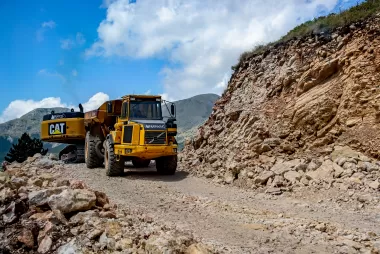
Blog
7 winning strategies for successful construction in Papua New Guinea
The adoption of CCS technology is particularly key in those industrial sectors where full decarbonisation is challenging. Since late 2018, Wood has been working closely with the Oil and Gas Climate Initiative (OGCI) Climate Investments group on a gas power and industrial carbon capture concept design.
This project aims to establish best practice for carbon capture within the UK’s highest emitting industries, demonstrate how challenges for individual emitters may be overcome, and develop credible cost estimates for each scenario. It could make a major contribution to the UK’s low-carbon future through the roll-out of onshore industrial carbon capture and development of an offshore UK carbon sequestration industry.
Wood has been working with the OGCI Climate Investments to develop the pre-FEED for a new build 750MW gas fired combined cycle power station, based in Teesside. It will be fully integrated with carbon capture of >90% of emissions, capturing 2MTPA of CO2 for offshore sequestration in the North Sea, as the anchor project for the first full-chain CCS project in the UK.
Our techno-economic assessments provided OGCI with a comprehensive assessment of the carbon capture technologies that could deliver >90% emissions reductions on a project of this scale by the mid-2020s, fully supported with independent and comparable cost estimates.
Our pre-FEED deliverables also provided accurate engineering definition to support the project moving to the next phase, inform the consenting process, and deliver implementation schedules and cost estimates to support negotiation of suitable commercial structures with the UK government.
The evaluations also establish clear performance and cost benchmarks against which new technologies can be critically assessed. This should drive investment towards those technologies which can realistically improve on state-of-the-art performance and, in time, drive down the cost of CCS even further.
Wood has also developed designs for carbon capture plants for other key industrial emitters in the UK – the production of hydrogen, petrochemicals, fertiliser, cement, steel and oil refining. Some of these may form the backbone of the first UK CCS industrial cluster near Teesside, contributing a further 1MTPA of CO2 emissions reduction from industries using natural gas feedstocks.
The oil and gas sector has an important role to play in driving down global emissions and achieving the ‘Net Zero’ world set out by the Committee on Climate Change. The large majors are ideally placed to influence the development and operation of a new offshore carbon sequestration industry, through their understanding of mega-project development, risk management and familiarity with offshore installations.
A significant part of the risk and cost reduction for this new industry will only come through establishing the first full-chain CCS project in the UK. Reducing the cost of CCS technology is important as it will build additional momentum in the industry. Lower developments costs will facilitate wider spread adoption of a technology that is now widely accepted as fundamental to building the low-carbon future that the UK aspires to deliver.
Wood is exhibiting at Offshore Europe 2019 from 3 – 6 September. Visit us at stand 3E40 to experience the Art of the Possible; showcasing our people and broadened capabilities across new markets and industries via interactive artwork. Find out more here.